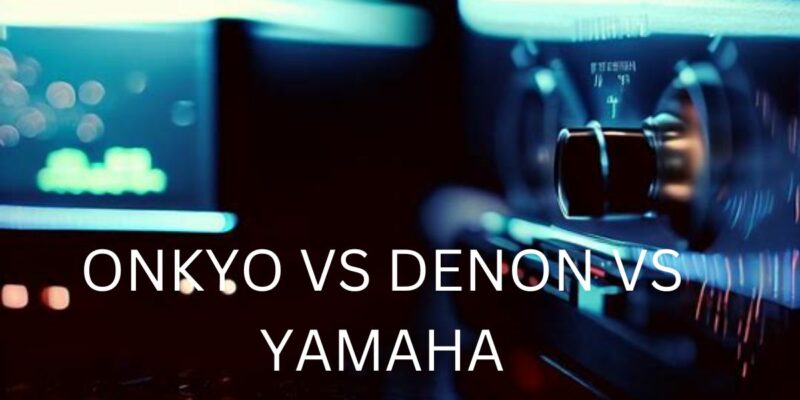When it comes to audio equipment, Onkyo, Denon, and Yamaha are three prominent brands that have built a strong reputation in the industry. Audiophiles and home theater enthusiasts often find themselves in a dilemma when choosing between these brands. In this article, we will explore the features, performance, and key differences of Onkyo, Denon, and Yamaha, helping you make an informed decision when it comes to selecting the perfect audio system for your needs.
Onkyo: A Legacy of Audiophile Quality
Onkyo is a Japanese brand that has been producing audio equipment for over 70 years. Known for their attention to detail and audiophile-grade sound, Onkyo receivers and speakers have become a favorite among discerning enthusiasts. Onkyo products often feature robust power outputs, advanced connectivity options, and meticulous build quality. Additionally, they have a reputation for providing a rich, warm sound signature that appeals to those seeking a more traditional audio experience.
Denon: Precision Engineering and Versatility
Denon, another venerable Japanese brand, has made a name for itself with its precision engineering and versatility. Denon receivers and speakers offer a blend of advanced features, sleek designs, and exceptional audio performance. Denon is often regarded for its emphasis on accuracy and clarity, making it a popular choice for those who prefer a more neutral or balanced sound profile. Their products also boast impressive compatibility with various audio formats, including high-resolution audio.
Yamaha: Innovation and Immersive Audio
Yamaha, a brand that needs no introduction, has been a dominant force in the audio industry for decades. Renowned for their innovation and cutting-edge technologies, Yamaha has successfully combined performance and user-friendly features. Yamaha receivers and speakers often offer immersive audio experiences through technologies like Virtual Cinema DSP and MusicCast, which allow for multi-room audio and wireless connectivity. Yamaha’s audio systems are favored by those who seek a balance between audio quality, convenience, and forward-thinking design.
Key Features Comparison
When comparing Onkyo, Denon, and Yamaha, it’s essential to consider several factors:
1. Sound Quality: Each brand has its own sonic signature, with Onkyo emphasizing warmth, Denon focusing on accuracy, and Yamaha delivering immersive experiences.
2. Power and Connectivity: Onkyo and Yamaha receivers typically offer robust power outputs, while Denon emphasizes versatility and compatibility with the latest audio and video formats.
3. Design and User-Friendliness: Yamaha products often feature sleek designs and user-friendly interfaces, while Onkyo and Denon excel in build quality and intuitive controls.
4. Advanced Features: Denon and Yamaha are known for incorporating innovative features like wireless connectivity, multi-room audio, and app integration, providing enhanced flexibility and convenience.
Making the Right Choice
Ultimately, choosing between Onkyo, Denon, and Yamaha depends on your personal preferences and specific requirements. Consider factors such as your desired sound signature, the power needed for your setup, the level of connectivity and versatility desired, and your budget. It’s also advisable to listen to audio systems from each brand in person, if possible, to get a firsthand experience of their sonic characteristics.
In conclusion, Onkyo, Denon, and Yamaha are all formidable brands that offer high-quality audio equipment. Whether you prioritize audiophile sound, versatility, or innovative features, each brand has its unique strengths. Take the time to research and evaluate your needs carefully to select the brand that aligns best with your preferences and elevates your audio experience to new heights.
Remember, in the world of audio, it’s not just about the brand; it’s about finding the perfect match for your ears and your space. Happy listening!

